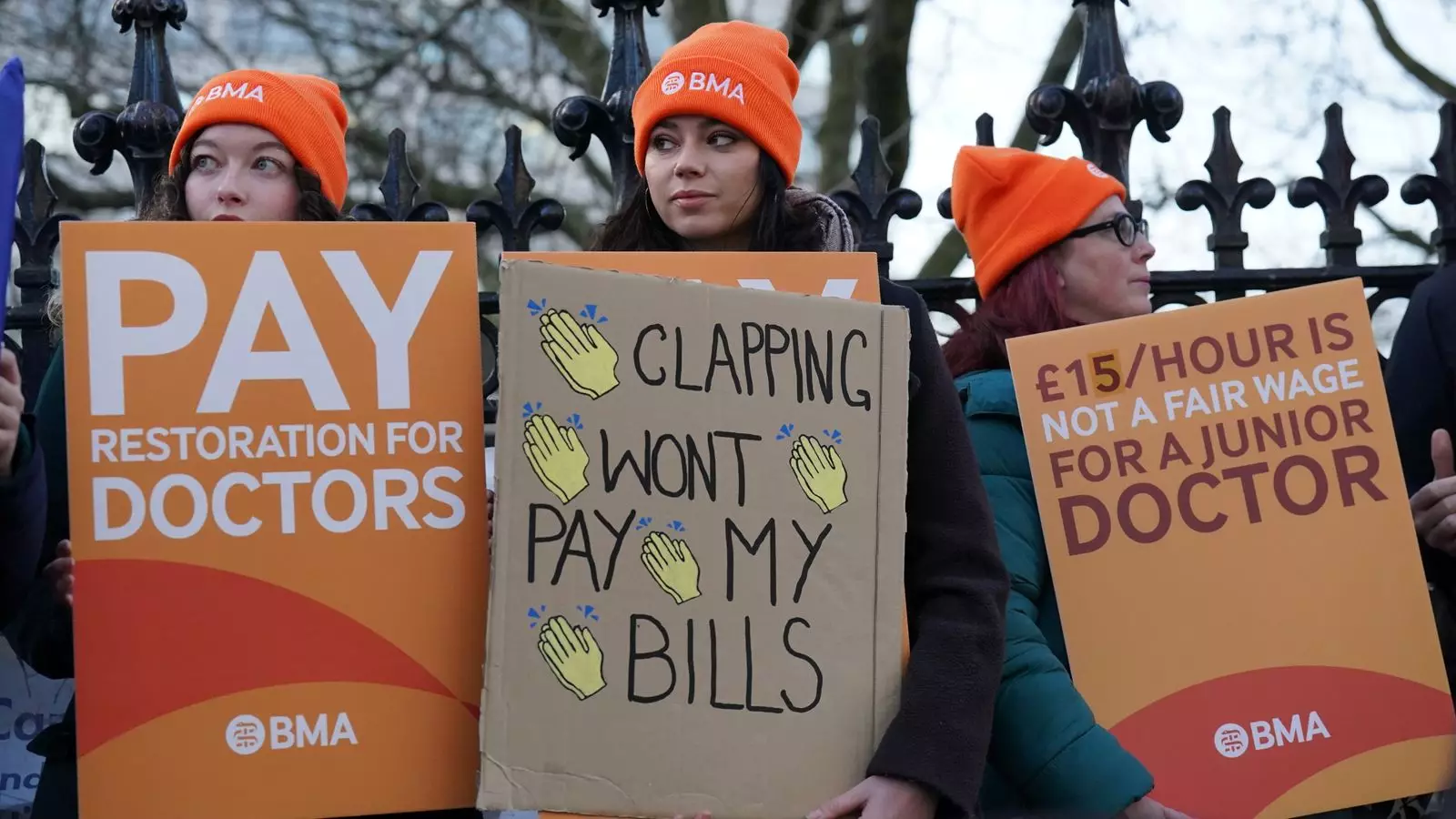The ongoing junior doctors’ strike in England, organized by the British Medical Association, has led several NHS trusts to declare critical incidents on the very first day of the strike. This six-day walkout, which marks the longest industrial action in the history of the NHS, has sparked concerns about patient safety. The strike primarily revolves around pay disputes, and the affected doctors are those who have graduated from medical school and have between one and nine years of experience. The following NHS trusts have declared critical incidents: Lewisham and Greenwich, Nottingham and Nottinghamshire, and Portsmouth Hospitals University.
One of the hospitals deeply impacted by the strike is the Lewisham and Greenwich NHS Trust. According to a spokesperson, the strike is proving to be extremely challenging as it coincides with their busiest week. The trust has submitted a “safety mitigation request” to cope with the increased patient demand during this period. They have called for additional doctors to work at their two hospitals to ensure high levels of patient care and safety.
The medical director at NHS Nottingham and Nottinghamshire, Dr. Dave Briggs, has urged the public to consider alternative options before attending Accident and Emergency (A&E) departments. Due to the strike, waiting times have significantly increased, and the director emphasizes that only patients with life-threatening illnesses or injuries that cannot be treated elsewhere should visit A&E. Dr. Briggs suggests self-care as a viable option for conditions like coughs and colds. If self-care is not possible, individuals should contact the emergency helpline, 111, for further assistance.
The Portsmouth Hospitals University NHS Trust has cited a combination of delays and increased demand for services as the reasons for declaring a critical incident. With the strike and the aftermath of the bank holiday weekends, the hospital is facing low staffing numbers, particularly in the emergency department. They call upon the community’s support to ensure the hospital can continue providing quality care to those in need.
Emergency Services Reminder in Wales
The Welsh Ambulance Service has also issued a reminder to the public to only call 999 for serious, life-threatening emergencies or injuries. With a high number of calls in recent days, it is essential to reserve the emergency line for those in critical condition. This reminder aligns with the overall concern for patient safety during the ongoing strike.
Hospitals’ Derogation Requests
In response to the strike, a number of hospitals have submitted derogation requests to the British Medical Association, urging doctors to return to work. Although more than 20 requests were made, with some hospitals possibly submitting multiple requests, only one has been considered and approved. The unions continue to assess the final request. While attempts are being made to minimize disruptions caused by the strike, the rejection of most derogation requests showcases the seriousness of the ongoing pay dispute.
The primary demand of the striking junior doctors is a full pay “restoration” to reverse the real-term pay cut of 26.1% that they have experienced since 2008. Last summer, the doctors were offered an 8.8% pay rise, with an additional 3% proposed towards the end of the year. However, the British Medical Association rejected this offer, deeming it insufficient to offset the previous pay cuts. The doctors also seek other changes, including the establishment of a mechanism that prevents future pay decreases in comparison to the cost of living.
The junior doctors’ strike in England has raised significant concerns about patient safety, leading several NHS trusts to declare critical incidents. With strikes disrupting normal hospital operations, it becomes challenging to provide adequate care to patients. The affected trusts, such as Lewisham and Greenwich, Nottingham and Nottinghamshire, and Portsmouth Hospitals University, are grappling with increased patient demand, staffing shortages, and longer waiting times. While hospitals make derogation requests to bring back doctors to work, the junior doctors’ demands for pay restoration and other changes remain unresolved. As the strike continues, the need for a resolution that prioritizes patient safety and addresses the concerns of the junior doctors becomes more pressing.


Leave a Reply